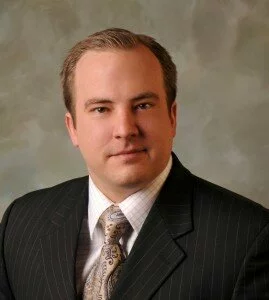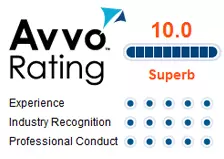Barone Defense Firm Senior Trial Attorney Michael Boyle inaugurated the new 63rd (2nd division) encompassing the cities of E. Grand Rapids, Lowell and the Townships of Grand Rapids, Ada, Cascade, Vergennes, Lowell, Bryon, Gaines, Caledonia and Bowne) with its first not guilty verdict on December 21, 2009.
The facts of the case were as follows: Our client was charged with Operating While Intoxicated (OWI) 2nd. The prior charge dated back to 2007. Our client was also charged with Open Intoxicants in a Motor Vehicle. At approximately 9:40 p.m., Kent County Sheriff’s Deputies and emergency responders were dispatched to a grocery store parking lot on a report of a man sleeping or passed out in his truck.
The Deputies and emergency crews arrived to find the driver passed out in his truck which was not running. The car was properly parked. The client had extremely slurred speech, nystagmus, was disoriented and had the strong odor of intoxicants. The client was arrested and his blood was drawn pursuant to a search warrant. The toxicology report came back showing a BAC of .16 grams of alcohol per 100 ml blood.
At the DAAD hearing for the alleged implied consent violation Mr. Boyle was able to obtain testimony from the Deputy that he DID NOT KNOW when client got to the parking lot, how long he had been there or how long he had been sleeping. He also DID NOT KNOW when he had consumed any alcohol, how much was consumed or over what period of time.
The Deputy did allege however that a half of a Fifth of Crown Royal was in the vehicle and further that he believed that a 32oz cup also found in the vehicle had a mixture of coke and crown with approximately 1/8 to 1/10 left in the cup.
Prior to trial the Prosecutor’s only offer was to plead straight up after which open intoxicants charge would be dismissed. Mr. Boyle suggested that his client might accept a plea to open intoxicants if the prosecutor would dismiss the OWI 2nd as this fit more properly with the facts and circumstances of the case. The prosecutor refused this counter-offer.
At trial, Mr. Boyle established that the state had no evidence of operation. Specifically, that there was no real evidence that the driver was under the influence of alcohol (OUIL) or above the legal limit (UBAL) while driving. Mr. Boyle was able to support this argument through cross examination of the State’s Expert who admitted that there was insufficient evidence.
Mr. Boyle also made a motion for special jury instruction informing the Jury that sleeping in a motionless vehicle, posing no significant risk, is not evidence of operation. The Judge agreed to this special jury instruction. After a very brief period of deliberations, the jury found our client NOT GUILTY of OWI.
To assist the reader in understanding this case, and why it went to trial, the following is an excerpt from Patrick T. Barone’s “Defending Drinking Drivers:”
State courts differ relative to the manner in which the term “actual physical control” is interpreted. Some courts require that the motorist be minimally capable of operating, which typically means that the key is in the ignition. Other courts have held that simply having both the key and the physical ability to place it into the ignition is enough. One such example is People v. Karjala, 526 N.E. 2d 926 (Ill.App. 3 Dist. 1988), where the court held that actual physical control only required that the motorist be seated behind the steering wheel in the driver’s seat with the ignition key and be physically capable of starting the engine and moving the vehicle. Similarly, in People v. Stephen, 685 N.W.2d 309 (Mich. App. 2004) the court determined that there was sufficient circumstantial evidence of operation where the defendant’s car was found lodged on top of a parking log with the wheels off the ground or barely touching it. After unsuccessfully trying to extricate his vehicle, the defendant turned off the car and went to sleep. He was found lying asleep across the seat with a sleeping bag. The defendant admitted to having been driving previously and then pulling over to sober up. See also People v. Solmonson, 683 N.W.2d 761 (Mich. App. 2004), where the defendant’s vehicle was discovered at 3:45 a.m. parked just outside the white fog lines of the highway. The engine was off and the defendant was in driver’s seat of the vehicle unconscious with an open can of beer in his lap. The keys were in the ignition and engine was still warm. The defendant never denied driving. The court found that these facts were sufficient to establish that the defendant operated until the vehicle was parked.











